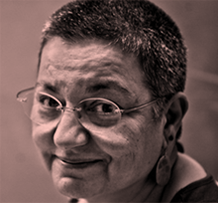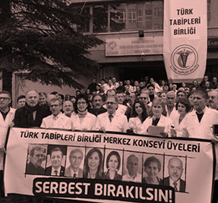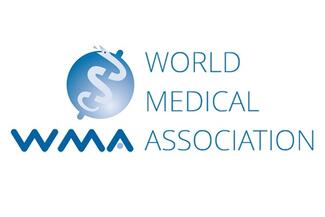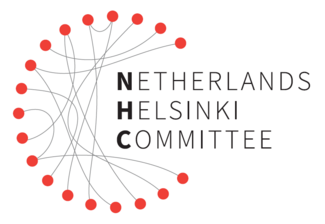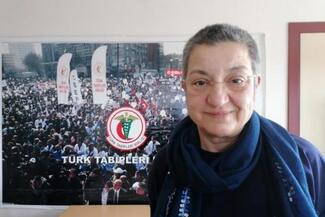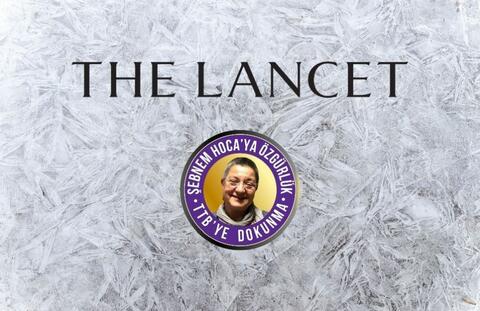
On Oct 26, 2022, as part of a mounting crackdown on human rights and of the medical profession specifically, the Turkish Government detained our colleague and friend, Şebnem Korur Fincancı. Fincancı is a globally renowned forensic physician and professor. She is also the President of the Turkish Medical Association (TMA), an independent medical association that represents almost 90% of Turkey's physicians. We call for global medical professionals and organisations to object to this politically motivated imprisonment.
Physicians and other health professionals must not be silent witnesses to such violations of fundamental human rights of a colleague seeking to fulfill her professional duties to protect and promote the health and dignity of all people without fear or favour. As the World Medical Association's (WMA) Declaration of Tokyo states, “The physician's fundamental role is to alleviate the distress of his or her fellow human beings, and no motive, whether personal, collective or political, shall prevail against this higher purpose.” In fact, the WMA, the World Psychiatric Association (WPA), and International Council of Nurses (ICN) have all spelled out a duty for health professionals to document and denounce acts of torture and ill-treatment. Our failure to do so constitutes complicity in such abuse.
Sadly, as we write this Correspondence, Fincancı is being detained by authorities in Türkiye after security forces raided her home. The reason given by Turkish authorities? After reviewing a videoclip released by Firat News Agency depicting two people allegedly exposed to toxic gases and exhibiting signs of seizure and delirious behaviour, Fincancı called for an independent investigation of the allegations that chemical weapons had been used, an act that was fully in line with internationally accepted best practices. By attacking Fincancı's freedom of expression and professional concern for the health of others, the Turkish Government is attempting to stifle the practice of evidence-based medicine and civil rights as a whole.
Fincancı has long been an internationally recognised forensic physician who in the past 30 years has worked to ensure the full and objective documentation by forensic physicians of evidence of torture and ill-treatment. In the face of threats to her wellbeing during her tenure as head of Istanbul University's forensic medical department, Fincancı courageously fought to maintain the independence of the Istanbul University forensic department by refusing to participate in biased and medically unethical evaluations of torture victims. She worked with us to develop The Manual on Effective Investigation and Documentation of Torture and Other Cruel, Inhuman or Degrading Treatment or Punishment, widely known as the Istanbul Protocol, the United Nations-endorsed guidance for legal and clinical investigation and documentation of torture. She has assisted in multiple international forensic investigations. In recognition of her international stature, Fincancı is a revered mentor and colleague to thousands of health professionals, students, and human rights defenders across Türkiye and around the world. Acknowledging her long service to the cause of human rights, she was awarded the Physicians for Human Rights' 2017 Award.
Fincancı's detention on politically motivated charges is the latest escalation in the Turkish Government's campaign to intimidate, silence, and punish her and other medical professionals who speak out about possible health harms as a result of alleged human rights violations.
In May 2019, for example, the 32nd Criminal Court of Ankara sentenced all 11 Central Council members of the TMA, including Fincancı, to prison for the crime of publicising the public health dangers of war.
Their brief statement had noted the adverse health consequences of all armed conflicts and the ethical responsibility of doctors to “defend life and commit to maintain the environment of peace”. Yet, for this statement, these clinicians were charged with “provoking the public to hatred and enmity” and “making terrorism propaganda”.
Fincancı was then sentenced to 2·5 years in prison for her involvement in that work, as well as for having signed a peace declaration along with hundreds of other academics in 2016, which responded to state violence by stating, “it is quite possible to live in peace and equality on this land”.
Fincancı was acquitted of these charges on appeal in 2020, but this did not stop Turkish authorities from arresting her again.
Fincancı's detention is part of a crackdown on the TMA as a whole, which, throughout its history, has been subjected to governmental persecution. During the 1980 military coup, the TMA was shuttered, its members put on trial, and its documents confiscated.
During the 2013 protests in Gezi Park, Istanbul, there was a largely peaceful set of demonstrations against the land use policies of the Erdoğan Administration. The TMA provided treatment for protesters who were harmed by tear gas, canisters used as projectiles, and other extreme uses of force by police. The following year, the TMA was subjected to a lawsuit by the Turkish Ministry of Health on the charges of “illegally establish[ing] healthcare units”
in the area. Although that case was eventually dismissed, the Ministry of Health later submitted a bill to the Turkish Parliament to criminalise the provision of unlicensed or unauthorised emergency medical care.
In signing this bill, President Abdullah Gül impeded the medical community's ethical and professional responsibilities to care for the sick and wounded among demonstrators.
Recently, during the COVID-19 pandemic, authorities targeted TMA members for speaking out about the Turkish Government's possible under-reporting of deaths from COVID-19.
Local leaders were ordered to surrender their passports and subjected to police monitoring. Some clinicians, including psychiatrist Özgür Deniz Değer, were charged with up to 4 years of imprisonment for “inciting fear and panic among the people”.
Thankfully, these charges were also dropped after public outcry. Additionally, in the past few years, numerous physicians have been charged and persecuted for providing medical care to Kurdish organisations and for supporting freedom of the press.
Leaders of the Nationalist Action Party are calling for the TMA to be shut down.
Governmental authorities are threatening to replace both Fincancı and members of TMA's Central Council, and to take measures that restrict the TMA's autonomy as an independent association. We fear they are intending to replace independent medical experts with individuals who have political affiliation with the Turkish Government.
The Erdoğan Administration is clearly attempting to make an example of Fincancı—to show that those who speak truth to power will be coerced, harassed, and detained. As physicians, health professionals, and human rights defenders, we have an ethical duty to support our colleagues who courageously denounce human rights violations. We urge everyone to join us in calling upon the Turkish judicial authorities to release Fincancı immediately and unconditionally, to protect the integrity and independence of the TMA, and to reject any further attempts to prosecute and punish Turkish medical professionals for simply fulfilling their ethical duties. We cannot remain silent while physicians suffer threats, harassment, and punishment for simply meeting their professional obligations.
